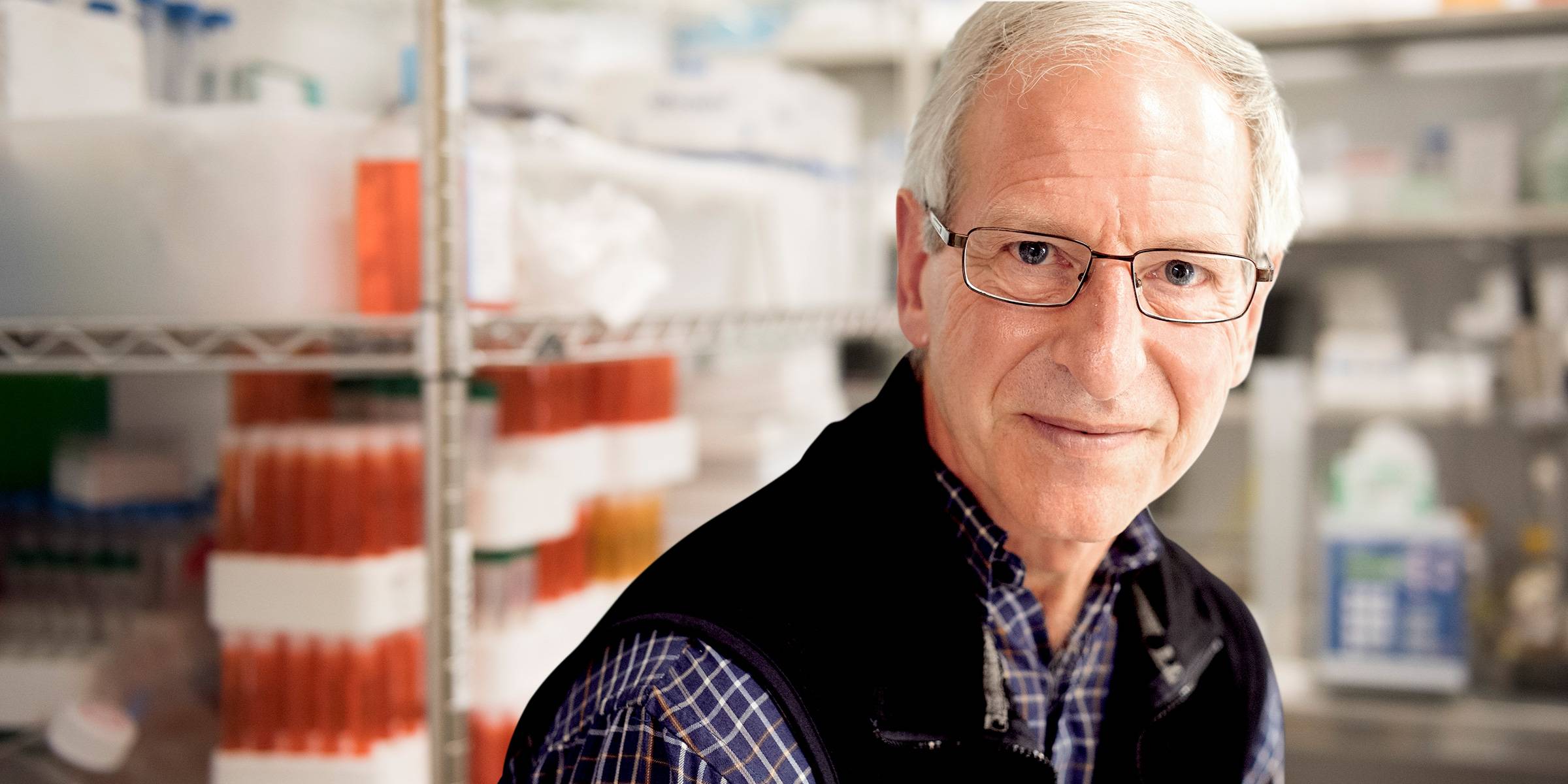Michael O'Donnell, Ph.D.
Anthony and Judith Evnin Professor
Investigator, Howard Hughes Medical Institute
The duplication of chromosomes and the regulation of their replication and repair requires dozens of proteins acting together to maintain the duplex DNA genome. O’Donnell’s laboratory studies these DNA metabolic mechanisms with the goal of understanding how the protein gears of DNA duplication act together with signal processes that function with repair and recombination factors to ensure genomic integrity.
Research from O’Donnell’s lab has provided an overview of how the replication machine, or replisome, functions in Escherichia coli, yeast, and humans. His recent work centers around humans and budding yeast, and understanding the dynamic behavior of the eukaryotic replisome components. His lab studies how the replisome interacts with DNA repair and cell cycle checkpoint machinery, how initiation of replication is directed by nucleosomes, and how replication forks perform nucleosome inheritance, the process by which nucleosomes (the fundamental structural unit of chromosomal DNA) are passed down from parental to daughter DNA during replication. The lab’s findings also provide insights into how replisomes achieve the asymmetric inheritance needed for development, and how they participate in DNA damage checkpoint control pathways. The team employs strategies such as super resolution microscopy to observe individual replisomes in real time during DNA replication in living cells, and cryo-electron microscopy of DNA-replisome and other replisome-associated complexes.
O’Donnell’s lab recently succeeded in determining the architecture of the eukaryotic replisome, a feat not yet accomplished in a prokaryotic system. Eukaryotic replisomes must deal with histones, which organize the DNA in eukaryotic cells. The histones also regulate how the genome is expressed in different tissues of an organism, a process referred to as epigenetic inheritance. Cellular studies show the replisome is intimately involved with the inheritance of epigenetic information and cell fate, and the O’Donnell lab is working to understand the mechanistic details of these processes.
The lab is applying biochemical approaches along with techniques such as single-molecule technology, super resolution microscopy and cryo-EM single-particle reconstruction to understand how the replisome functions with other factors. These studies can be expected to provide new insights into eukaryotic replication, repair, and epigenetic inheritance.
O’Donnell is a faculty member in the David Rockefeller Graduate Program, and the Tri-Institutional M.D.-Ph.D. Program.
